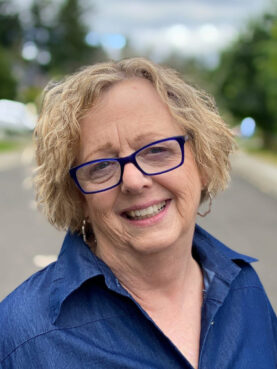(RNS) — Trauma-informed care is a growing movement across the world, and in the past decade, spiritual directors have increasingly used its methods to deal with clients who suffer from religious trauma and spiritual abuse.
Seminaries are now including trauma-informed care as part of their clinical pastoral education programs, and religious leaders in more progressive denominations say more needs to be done to make congregations healthy and safe places.
“When I look at the church and some of the culture of what’s happening right now with so many people not even wanting to come to the church, it highlights that sense of not having trust in the church, or not feeling safe in the church, not feeling a sense of belonging,” said Lisa Taylor, a soul-care practitioner with the CHRIS 180 Institute for Spiritual Health, where she trains clergy and spiritual care practitioners. “One of my greatest desires is for the church to become a sacred sanctuary where people can feel safe to be who they are.”
Trauma-informed care became a wider phenomenon in the 1970s with the awareness of what combat veterans experienced in Vietnam and how it spread to their children, said Taylor.
Trauma-informed care posits that trauma happens in the body and that changing the mind does not address the underlying roots of the trauma.

Janyne McConnaughey. (Courtesy photo)
“Denying that something has happened is actually not very helpful to us because it’s in our bodies,” said the Rev. Shannon Michael Pater, a Fort Worth, Texas, pastor in a United Church of Christ congregation who also has a private counseling practice.
Janyne McConnaughey, the author of “Trauma in the Pews,” said the church often frames issues of trauma as spiritual problems that might be remedied by reading the Bible or praying more.
“This person’s been trying to do that for years, and it hasn’t solved the problem,” said McConnaughey, who lives south of Seattle. “They just leave more defeated than helped, and they have more shame about their failure.”
A trauma-informed or integrated approach involves creating a sense of safety. It places an emphasis on the body and, therefore, many of the practices are body-based.
“I now very much notice body language,” said Karen Bartlett, a spiritual director with a trauma-informed approach in Wichita, Kansas. “I notice tone of voice. I notice words that are being used, and when trauma starts to emerge, I look at what they’re feeling in their body, and I’ll say, ‘Okay, what are you feeling right now as you’re speaking about this?’ And then, if it gets too uncomfortable, we’ll stop.”
Danielle Tumminio Hansen, professor of practical theology at Emory University, cautions her students to resist making assumptions.
“Curiosity is one of their biggest assets,” she said. “Their ability to come in and ask open-ended questions, to be very good active listeners, will help prevent them from making judgments about people.”

The Rev. Shannon Michael Pater. (Courtesy photo)
Much of being trauma informed is being aware of possible past experiences that can inform how a person shows up to spiritual settings, like church or Bible study. “I do not make assumptions that God is safe,” Bartlett said.
“The words ‘God’ and ‘Father’ are extremely activating for many people who have had trauma, and so it informs everything in how I talk with a directee. I listen carefully for where attachment issues might be coming in at play, where spiritual abuse from leaders might be coming in at play.”
For Pater, trauma doesn’t fully go away. It is integrated into the other stories people believe about God. A helpful illustration, Pater finds, is in John 20: “The resurrected Jesus character there is still presented as a wounded character. He still has the wounds in his hands, even in his resurrected self,” said Pater. “The scars might remain, but we can integrate these stories into the weave of us and carry on.”
“Oftentimes, the trauma will come back in at another time because the person has been triggered in some way. But the difference with it coming back is that now the victim or the person who’s been harmed has a toolkit that they can draw on,” said Hansen.
Despite the damage of spiritual abuse, communities of faith can still be places where connection and safety are found. “I believe that churches can exist without spiritually abusing people, but they have to understand trauma for that to be true,” said McConnaughey.
“One of the things religion can do for us is give us rituals that we participate in as a community,” said Pater. “We can be vulnerable enough communities and ritualize our remembering and ritualize ceremonies of integration, ceremonies of healing, really, ceremonies of community.”
You Might Also Like
New book calls for authentic engagement and equity in organizations
The Nine Asks by Kimberly Danielle Organizations have a responsibility to ensure that people who come there to work, worship,...
‘Holy Hurt’ is Hillary McBride’s field guide to the shattering impact of spiritual trauma
(RNS) — Trauma is a lot like having a shard of glass in your hand, explains clinical psychologist Hillary McBride....
So You Married a Priest? + Beth Allison Barr
It’s ministry by marriage. Did you know there are piles of guidebooks meant to help women excel at...
Abyssinian Baptist Church welcomes dismissal of pastor candidate’s discrimination suit
(RNS) — A federal judge has dismissed a gender discrimination lawsuit brought against Abyssinian Baptist Church by a onetime candidate...










